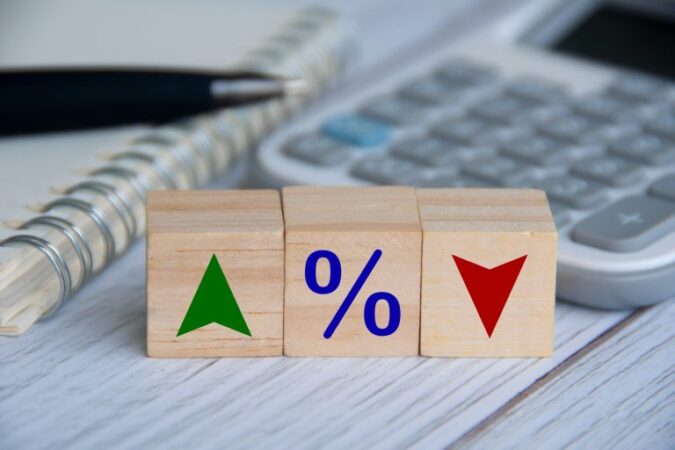If you have a mortgage, you can smile…but don't open the champagne. This is because February will bring, for the first time since April 2021, a downward review of the contract, albeit a minor one. But this decline in payments to the bank, which will be felt by holders of contracts with maturities of 3 and 6 months, has not yet been reflected in the 12-month contracts, which will still suffer a slight worsening, but with good news: “If this trend had continued, this would have been the last month.” of the increase. “In March, there will already be a decline in the value of housing credit,” said Nuno Rico, specialist at DECO PROTeste.
“The downward trend that began three months ago, with the November averages, is still continuing, although very slight. It was higher in the 12-month Eurobor, where the rate fell by 63 ppt, while in the 3-month Eurobor it fell by Only 6 thousandths. “However, this is the third month in a row – excluding the three-month Eurobor – that it has fallen globally,” explained the economist contacted by Executive Summary.
But let's look at the numbers:
Let's take for example a loan of €150,000 for 30 years, with a margin (the bank's commercial margin) of 1%:
– If the loan is indexed with Euribor for 12 months: the premium you will pay next year will rise to 770 euros, plus 25 euros (3.35%) compared to the premium you paid in the last 12 months (745 euros). The average rate recorded this month – data through January 26 – was 3.616%.
– If the index is for 6 months, be prepared to hand over €796 to the bank, a decrease of 0.5% (about €4) compared to August 2023, when the installment was €800. The average interest rate was 3.899%.
– Finally, if you have a 3-month contract: the average Euribor rate is 3.929%, which means a decrease in your premium of 0.49%: it decreases from 802 to 798 euros, minus 4 euros.
“There is still a reversal of values,” Nuno Rico noted. “This is a sign that the market view is that this decline will continue, and that within a year values will be lower than they currently are.”
“Despite the cuts, benefit levels are still very high,” the expert warns.
However, the expert said the good news is the reduction in payments. “I want to highlight this important news: for the first time since April 2021, we have downward revisions to premiums, in the case of Euribor at 3 and 6 months. With very slight declines, that is a fact, but for the first time the performance will be revised downward.
This is a scenario that promises to gain “breath” in the coming months. “The European Central Bank (ECB) has indicated that it will maintain these restrictive rates for a longer period, and there are still some concerns about inflation in some European economies, but everything indicates that the peak has already passed and we will see the light in the future,” he said. Bottom of the tunnel.
Nuno Rico stressed that the Portuguese will feel some relief in the performance, yes, but it is still too early to celebrate. “We have not yet felt relief in requests for assistance from DECO, the numbers are still at the end of 2023 level, for two reasons. First, despite these cuts that have already been made, benefit levels remain very high. In the case of the 12-month Euribor, seeing its contract revised in February would still mean a slight increase. It will take some time for families to start feeling that relief. Second, we have the issue of the cost of living remaining high. Despite low inflation, household budgets remain very tight. I might venture that by the end of the first trimester we won't feel this comfortable.
Could this more favorable scenario for the Portuguese wallet lead to increased demand for purchasing a home? Nono Rico left advice. “There is this fear, but it is important to leave this message to consumers: property prices are still very high. He pointed out that the correction in terms of prices has not yet happened, there is a slowdown in price developments but there has not been a decline yet, compared to the last few years but also in terms of The Portuguese entered.
He added: “In addition to the scenario of a slight increase in unemployment, I would say that the economic prospects that we are talking about will not be the most optimistic. The expert said: “We are in an electoral scenario, and we do not know what will happen as of March 10, so there is no appropriate context.”
“That is why the advice we give to consumers is along the same lines: it is necessary to carefully assess the family’s financial situation, stability and income level, and try to find a property that suits the rate of effort, which is very difficult,” he warned, saying: “Always think carefully about the purchase issue.” “Because what we may witness in the coming months or years is a period of decline, and it is always very gradual.”
“A return to negative interest rates is unlikely to happen again,” he concluded. “It was an exceptional period and difficult to repeat.”
Home payments have risen by more than 73% in the last two years: 1.5 million Portuguese households pay their bills monthly in exchange for increases
The interest burden rises from 33% to 61% of the average mortgage loan payment in one year
Portuguese with home loans are already seeing the light at the end of the tunnel: installments fall by about 10% in the second half of 2024.

“Wannabe internet buff. Future teen idol. Hardcore zombie guru. Gamer. Avid creator. Entrepreneur. Bacon ninja.”

